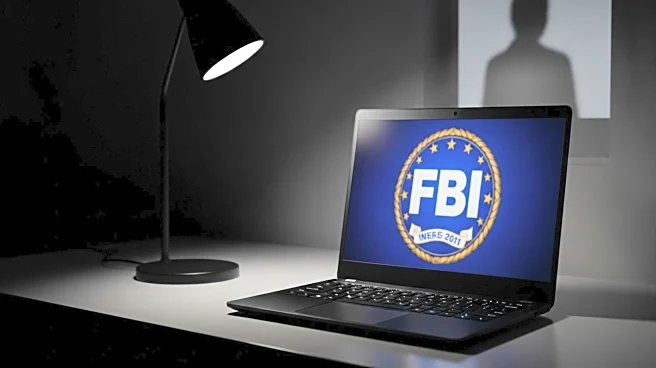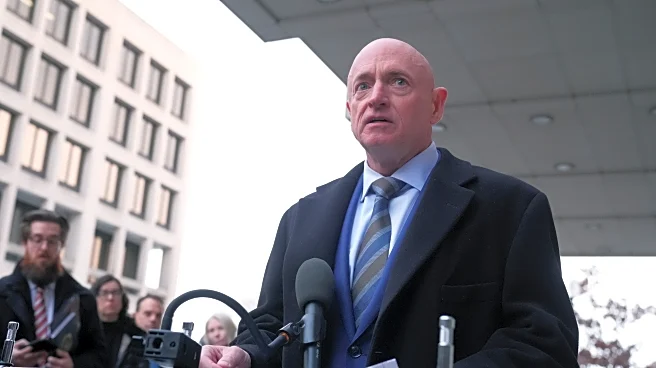What's Happening?
Tyler Robinson, the alleged assassin of conservative activist Charlie Kirk, reportedly joked with friends on Discord about his resemblance to the suspect in FBI-released photos. The FBI had released images of a man suspected of killing Kirk, prompting Robinson to claim the person in the photos was his 'doppelganger.' The 22-year-old is accused of fatally shooting Kirk in the neck during an event at Utah Valley University. Robinson's online interactions included dismissive comments about the investigation and suggestions that the shooter was someone else. He was eventually arrested after turning himself in, following discussions with his father and a youth minister.
Why It's Important?
The assassination of Charlie Kirk, a prominent conservative figure, has significant implications for political discourse and security at public events. The incident highlights the potential dangers faced by public figures and the role of social media in influencing or reflecting public sentiment. Robinson's alleged behavior on Discord underscores concerns about the use of online platforms for discussing and potentially planning violent acts. The case also raises questions about the effectiveness of law enforcement in tracking and apprehending suspects in high-profile cases, as well as the societal impact of such violent acts on political polarization.
What's Next?
Following Robinson's arrest, legal proceedings will likely focus on the charges of aggravated murder. The case may prompt discussions on security measures for public figures and events, as well as the monitoring of online platforms for potential threats. The outcome of the trial could influence public policy on gun control and digital surveillance. Additionally, the political community may respond with increased security protocols and calls for unity against violence.
Beyond the Headlines
The incident may lead to broader discussions about the cultural and ethical implications of political violence and the responsibilities of social media platforms in preventing the spread of harmful content. It could also spark debates on mental health support and intervention strategies for individuals exhibiting violent tendencies online. Long-term, the case might influence legislative actions aimed at curbing online radicalization and ensuring the safety of public figures.











